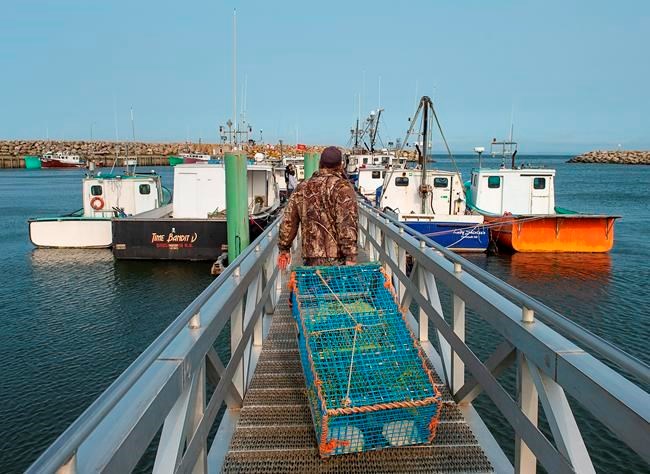Northern B.C. First Nations are expressing support for Mi’kmaq fishers in the ongoing crisis over Indigenous fishing treaty rights.
Carrier Sekani Tribal Council (CSTC) is calling for federal action regarding the violence directed at Mi’kmaq fishers in southwestern Nova Scotia.
The situation began intensifying in late September when a flotilla of non-Indigenous fishermen removed about 350 Mi’kmaq lobster traps near St. Mary's Bay.
Mi’kmaq Chief Terrance Paul called for the federal government and the RCMP to charge those “who are cutting and stealing our traps, shooting flares at our boats, and threatening the lives of our people.”
Then, on Saturday (Oct. 17), a lobster pound in Middle West Pubnico, N.S., was set on fire destroying the lobster catch of Mi’kmaq fishers.
The fire erupted hours after police arrested and charged a man in relation to an assault against Chief Mike Sack of the Sipekne'katik First Nation.
The blaze also capped a week of violence that included two other clashes involving hundreds of people outside lobster pounds that store Indigenous-caught lobster.
Non-Indigenous protesters are opposing Sipekne'katik First Nation’s decision to start a commercial lobster fishing business that has operated outside the federally regulated lobster season since mid-September.
However, Indigenous people in Atlantic Canada and Quebec have a treaty right to fish for a moderate livelihood -- a right upheld by the Supreme Court of Canada.
Now, northern B.C.'s Carrier Sekani Tribal Council has announced it is standing in solidarity with the Mi’kmaq fishers.
“CSTC and Tribal Chief Mina Holmes stand in support of the Sipekne’katik Nation’s protected right to fish under the Constitution of Canada and calls on Prime Minister Justin Trudeau to take definitive action against escalation of destruction and violence against the Mi’kmaq people,” says CSTC in a news release, which is made up of seven bands under one council.
“CSTC member nations have witnessed the apathy and inaction of RCMP in response to acts of violence towards the Mi’kmaq people. It is the responsibility of the federal government to immediately ensure Canadian laws that protect treaty rights to earn a living from fishing are enforced.”
The Supreme Court of Canada issued a landmark decision in 1999 that said the Mi'kmaq and Maliseet people of Atlantic Canada and the Gaspe region of Quebec have a right to earn a "moderate livelihood" from fishing.
The ruling upheld the Peace and Friendship Treaty of 1752, which promised Indigenous Peoples the right to hunt and fish their lands and establish trade.
Many non-Indigenous critics, however, cite a clarification issued by the court, stating the treaty rights would be subject to federal regulations.
Commercial fishermen have also expressed concern with the conservation of fish and lobster stocks.
Yet others have argued that commercial fishing seasons are based on the economy and trade, and the scale of the small Indigenous fishery doesn't impact conservation.
“The escalating events in the Atlantic lobster fishery dispute are further revealing of a deeply flawed standard of justice that is fueled by systemic racism,” says CSTC, in its release.
“Immediate action from the highest level of government must be taken as those inciting hatred and fear have instilled and perpetuated an environment of lawlessness and little action has been taken to prosecute this criminal behaviour.”
Public Safety Minister Bill Blair said he has approved a request by Nova Scotia's Attorney General to step up the RCMP presence in the region in an effort to keep the peace.
The move fell short for two of the federal opposition leaders.
Conservative Leader Erin O’Toole said the government is not doing enough to ensure public safety and find a peaceful resolution to the fisheries crisis.
NDP Leader Jagmeet Singh called the violence against the Indigenous fishers "terrorism."
"The Mi'kmaq people desperately need help now," he said on Twitter. "This must be stopped."
The CSTC consists of the Ts’il Kaz Koh First Nation (Burns Lake Band), Nadleh Whut’en, Saik’uz First Nation, Stellat’en First Nation, Takla Lake First Nation, Tl’azt’en Nation and Wet’suwet’en First Nation.
- with files from The Canadian Press








